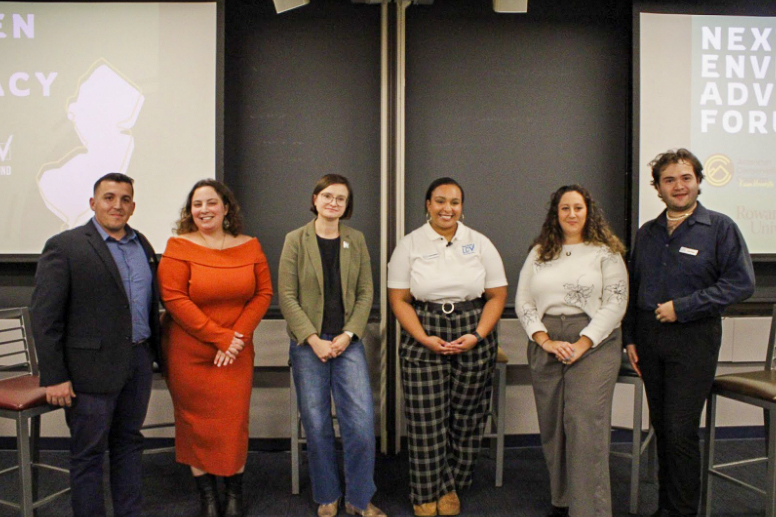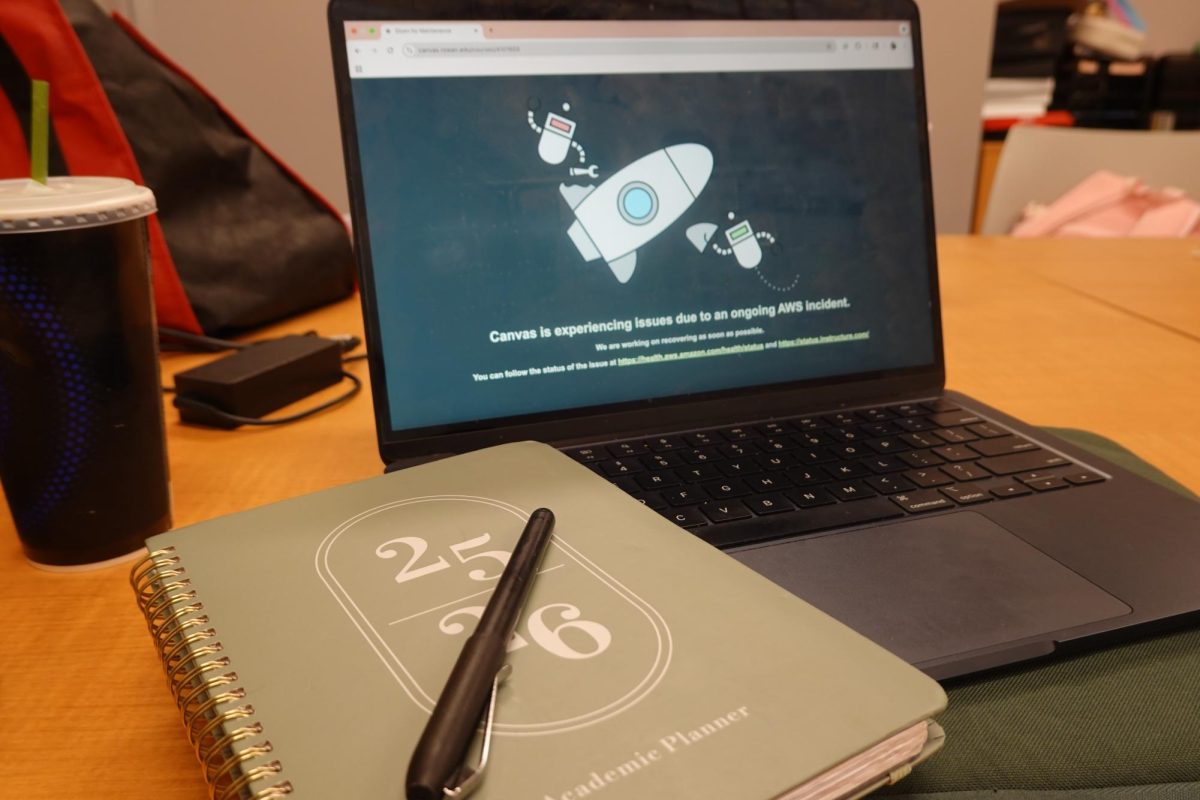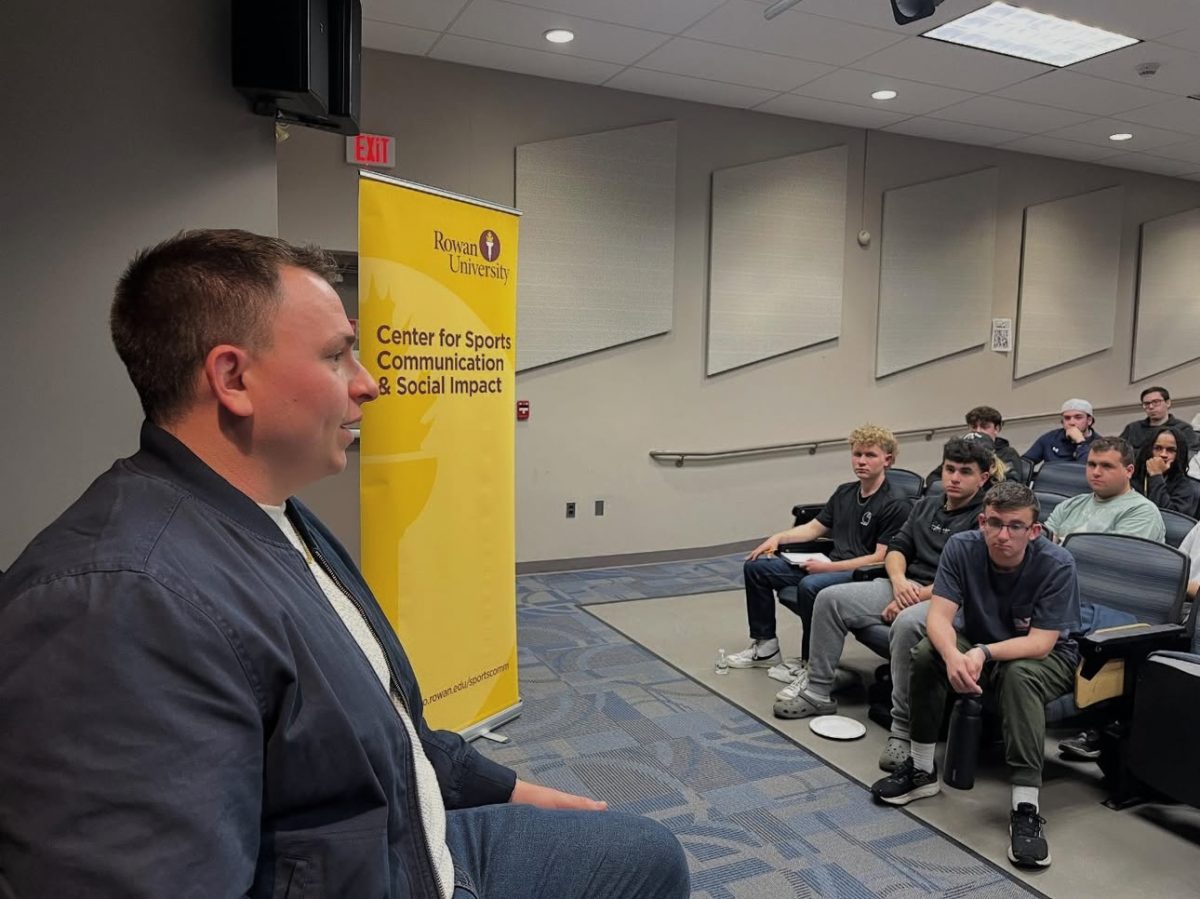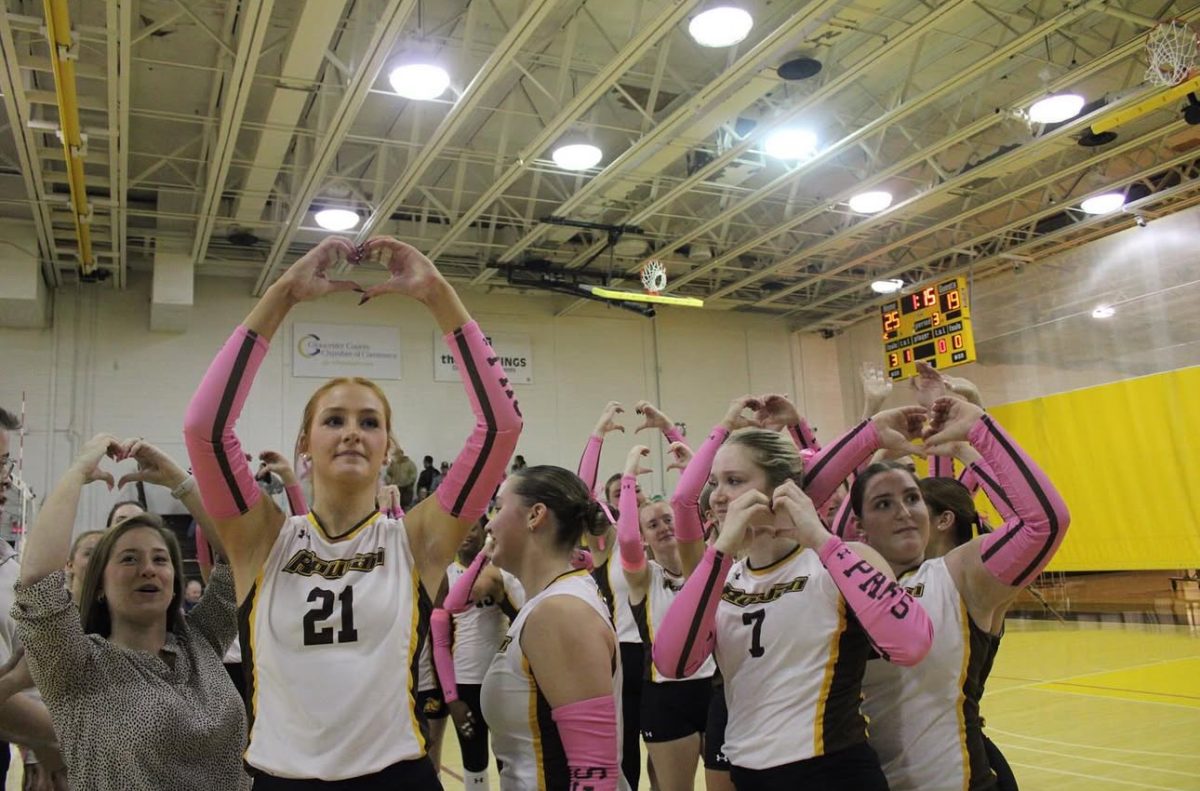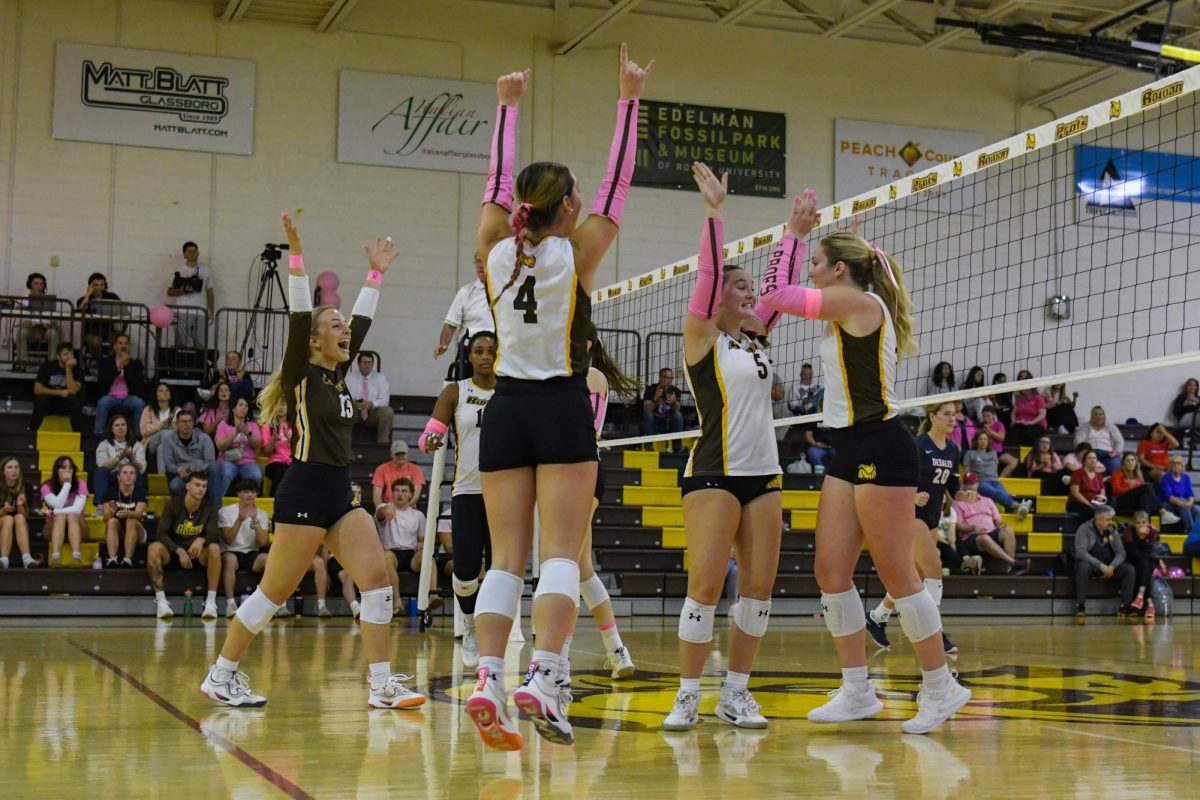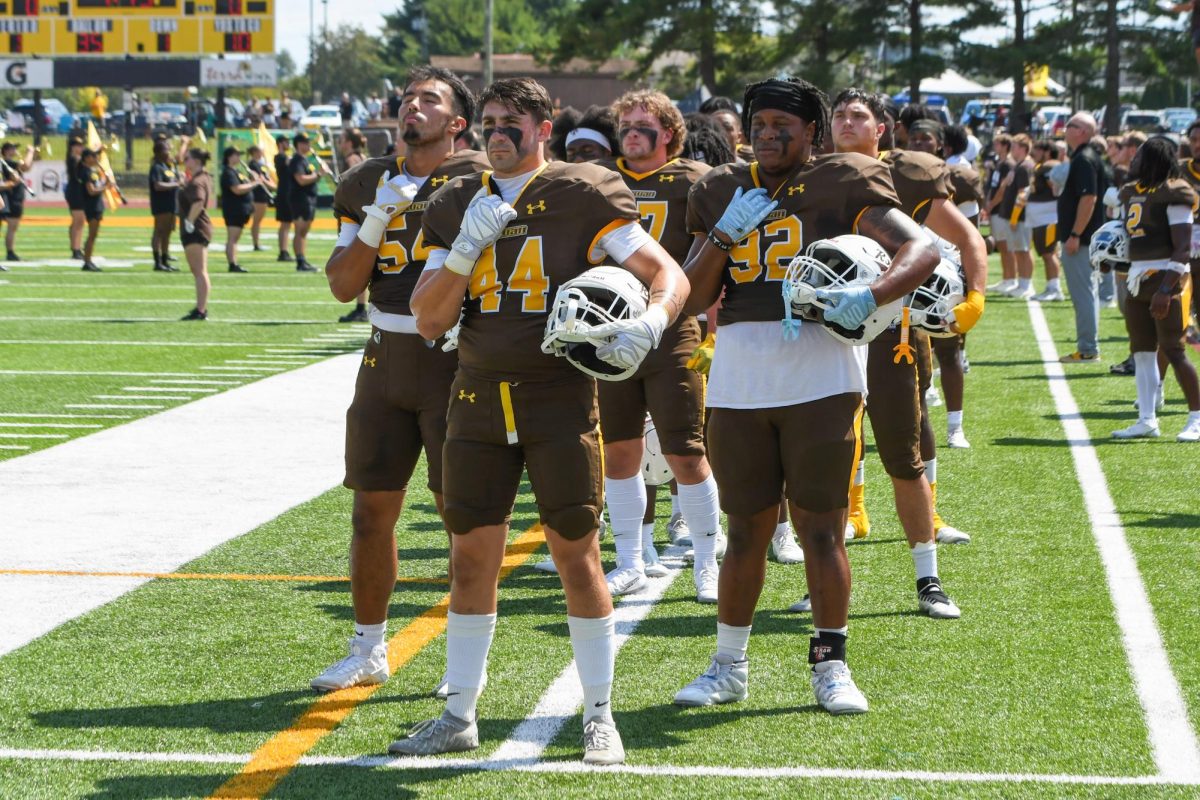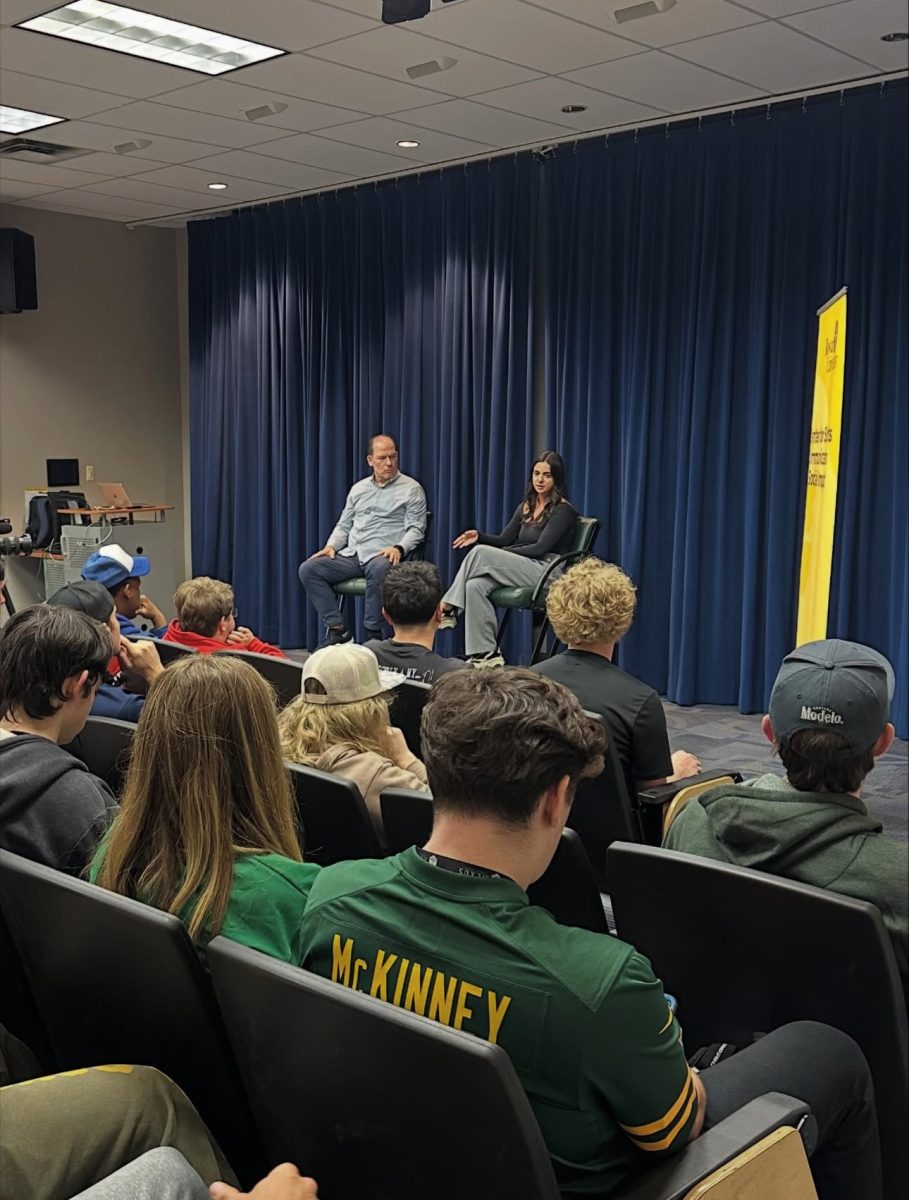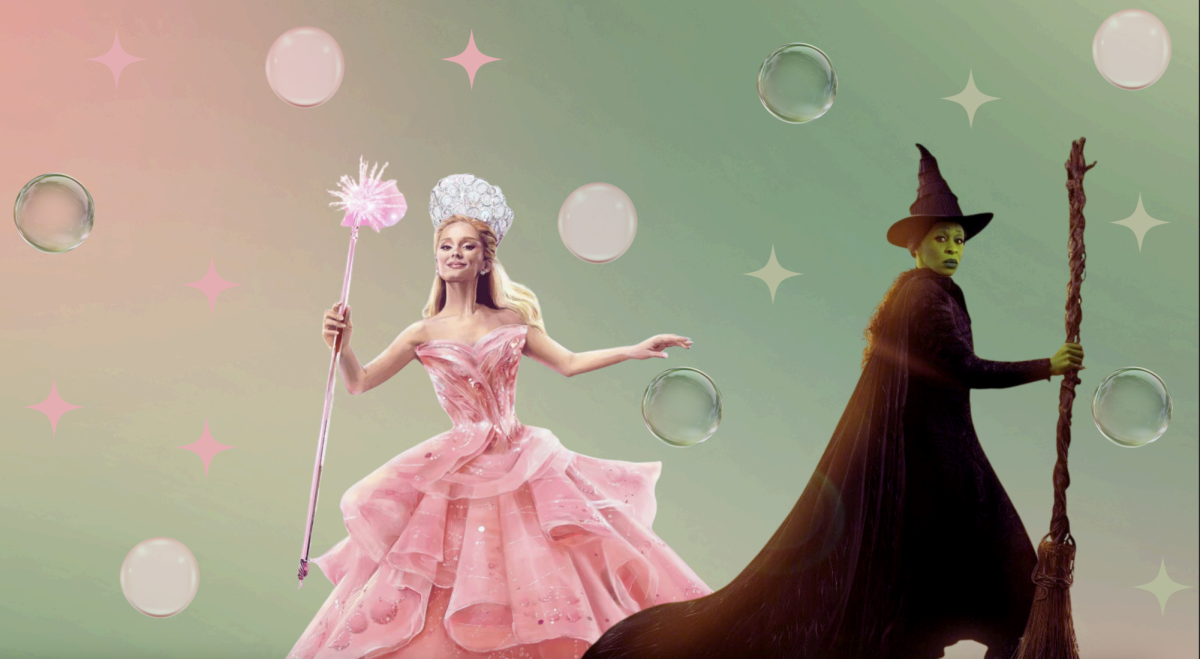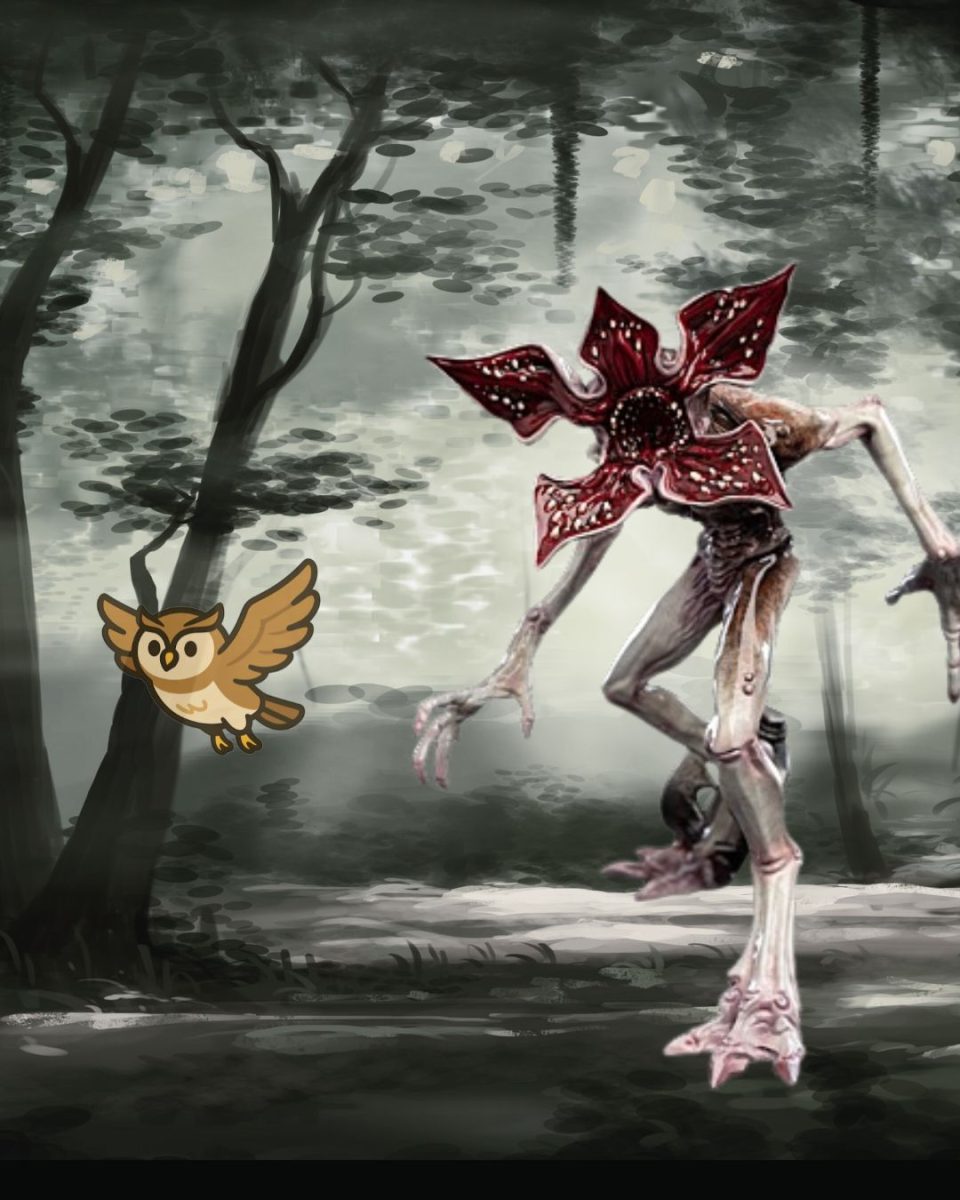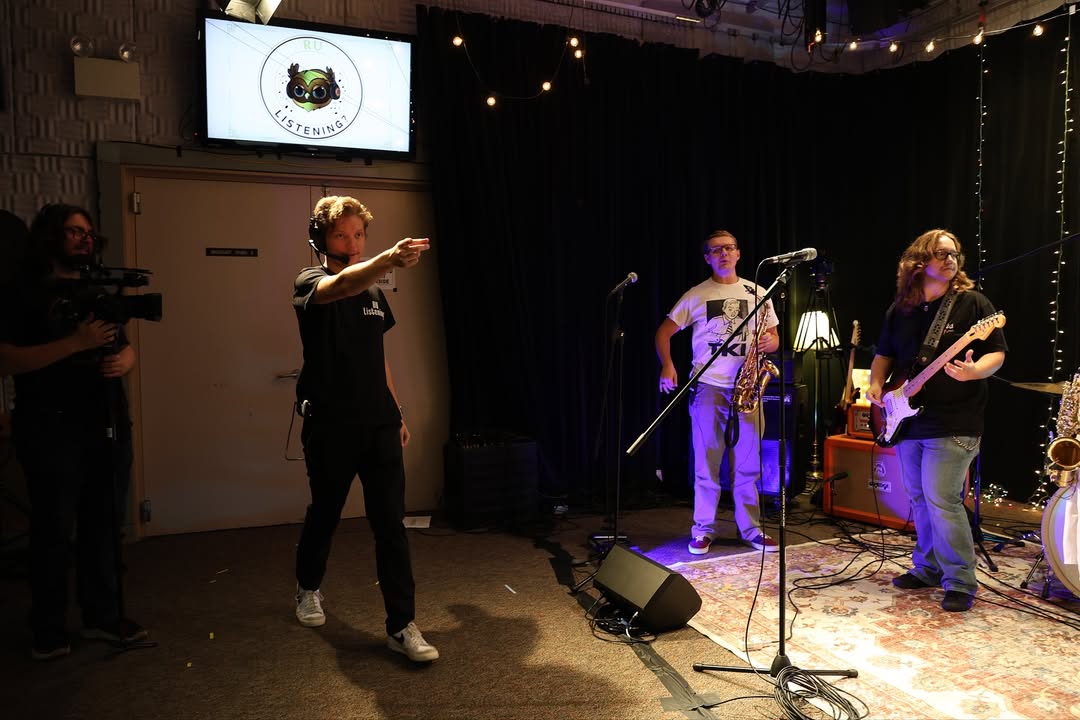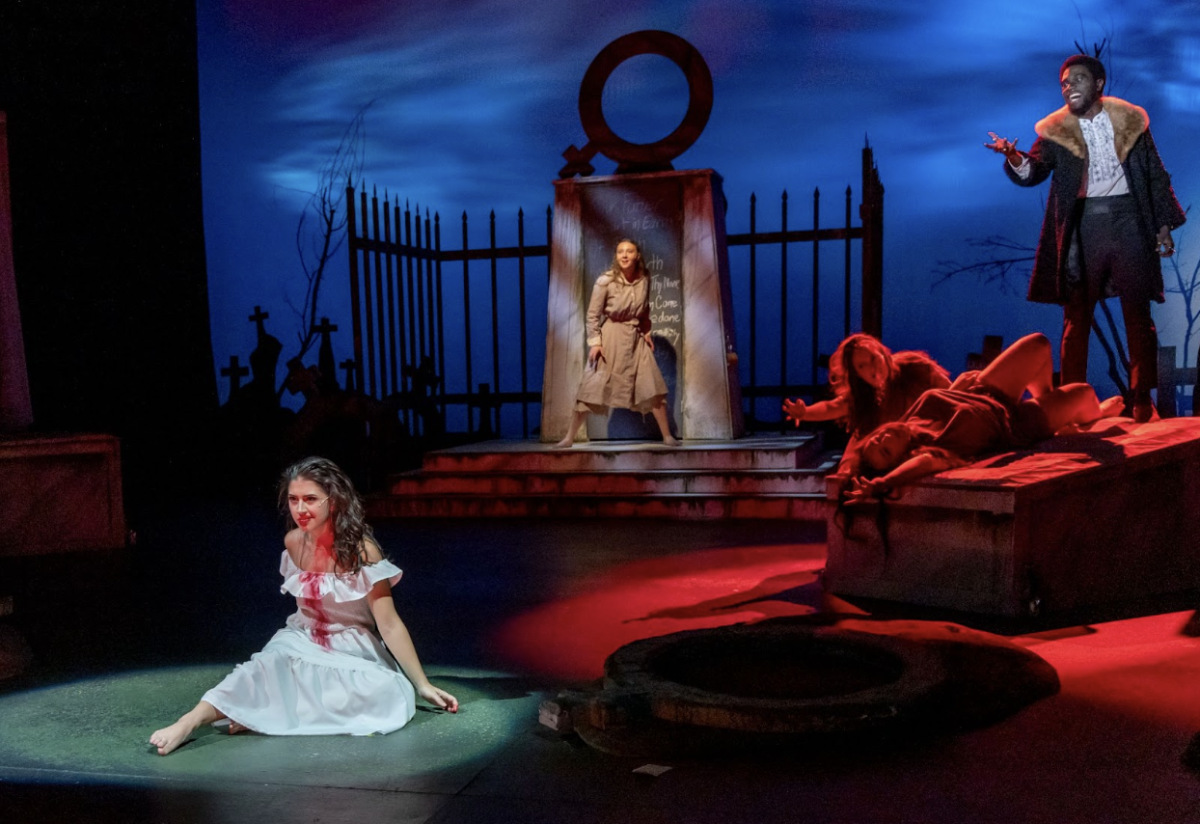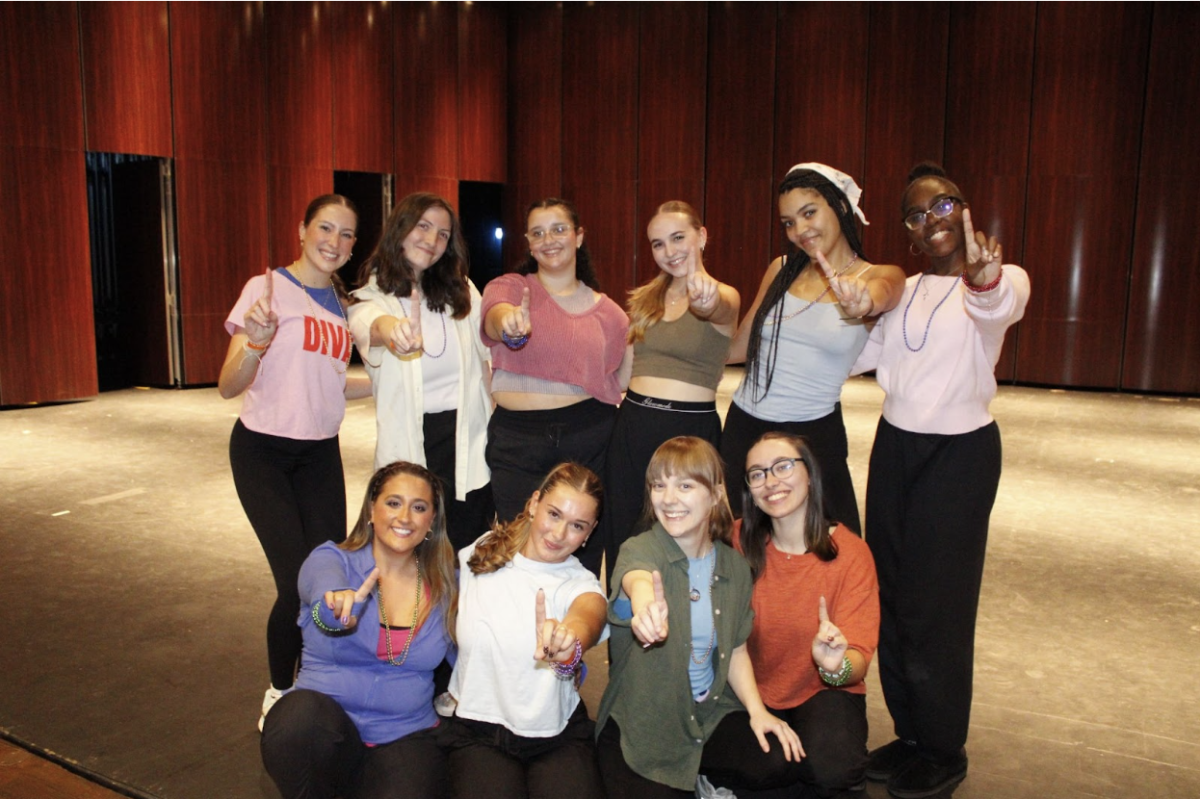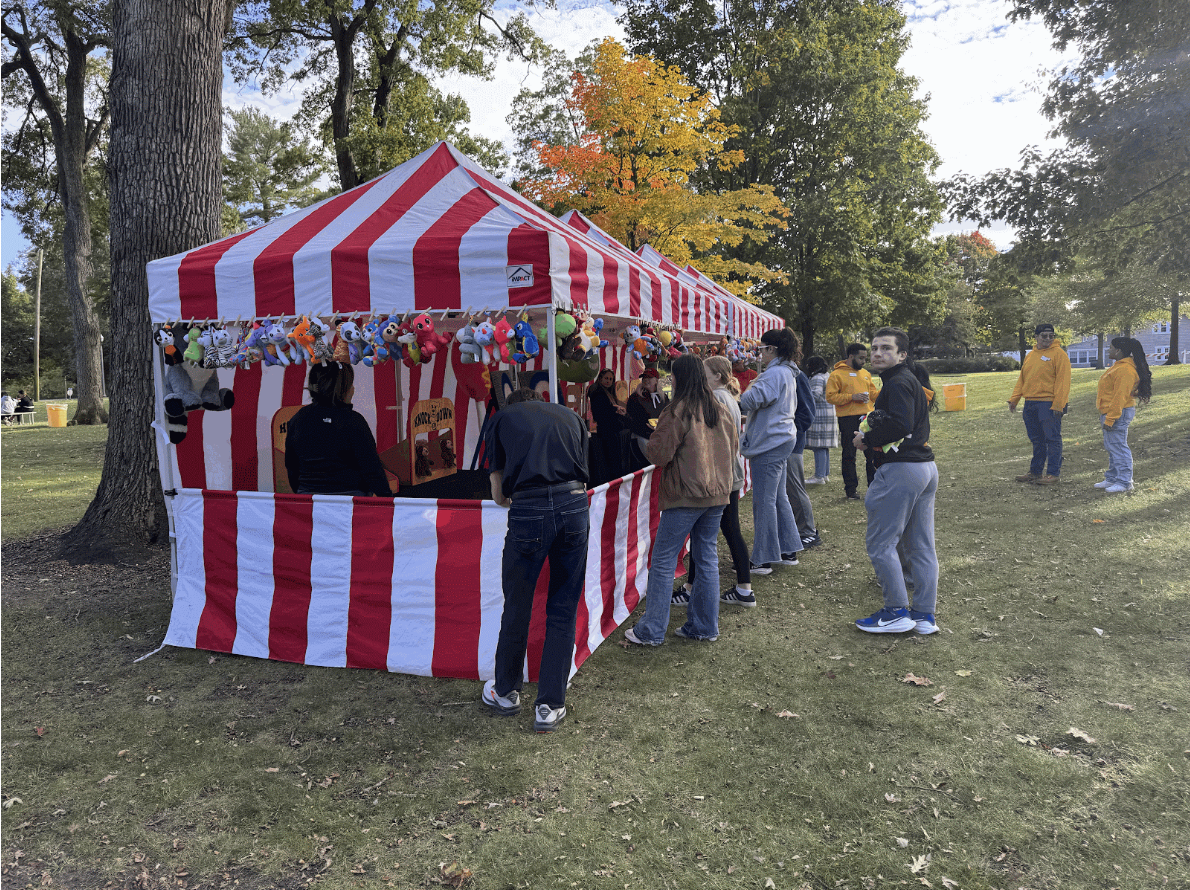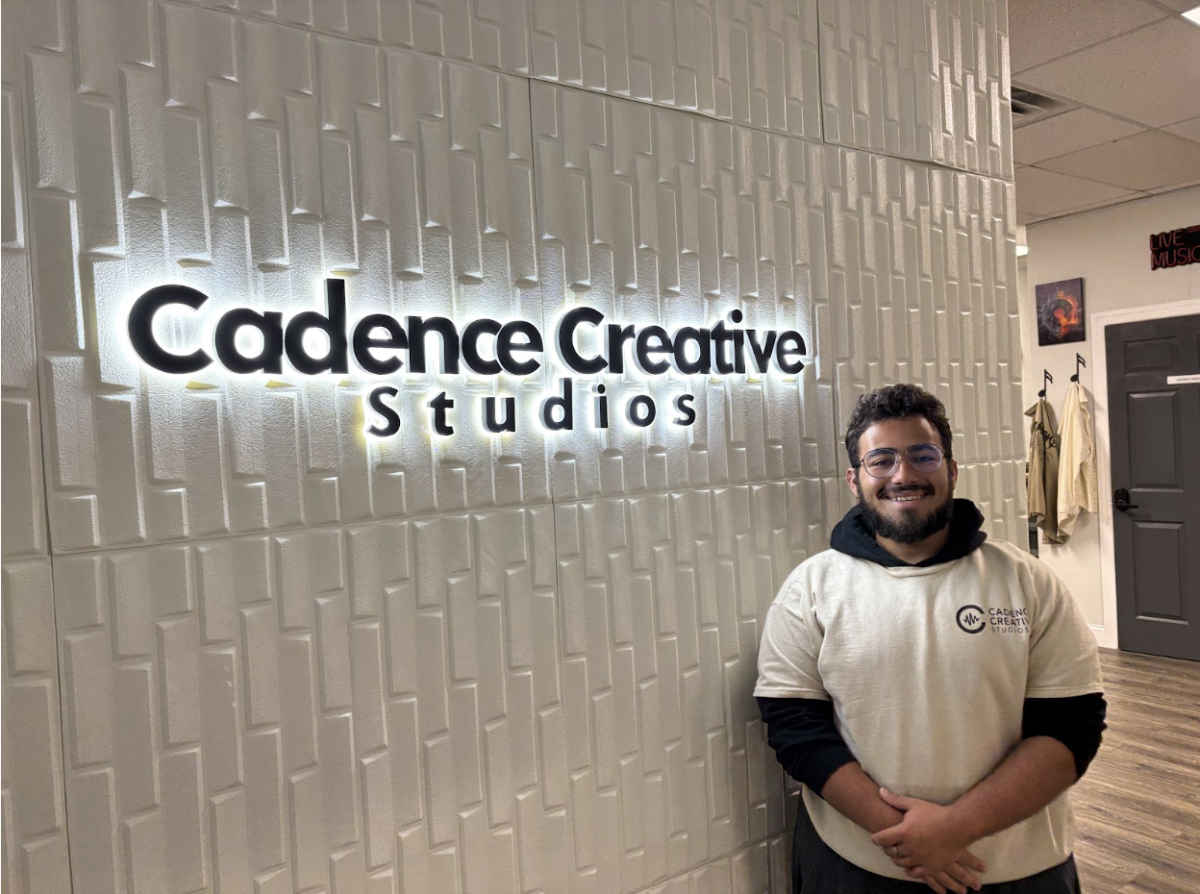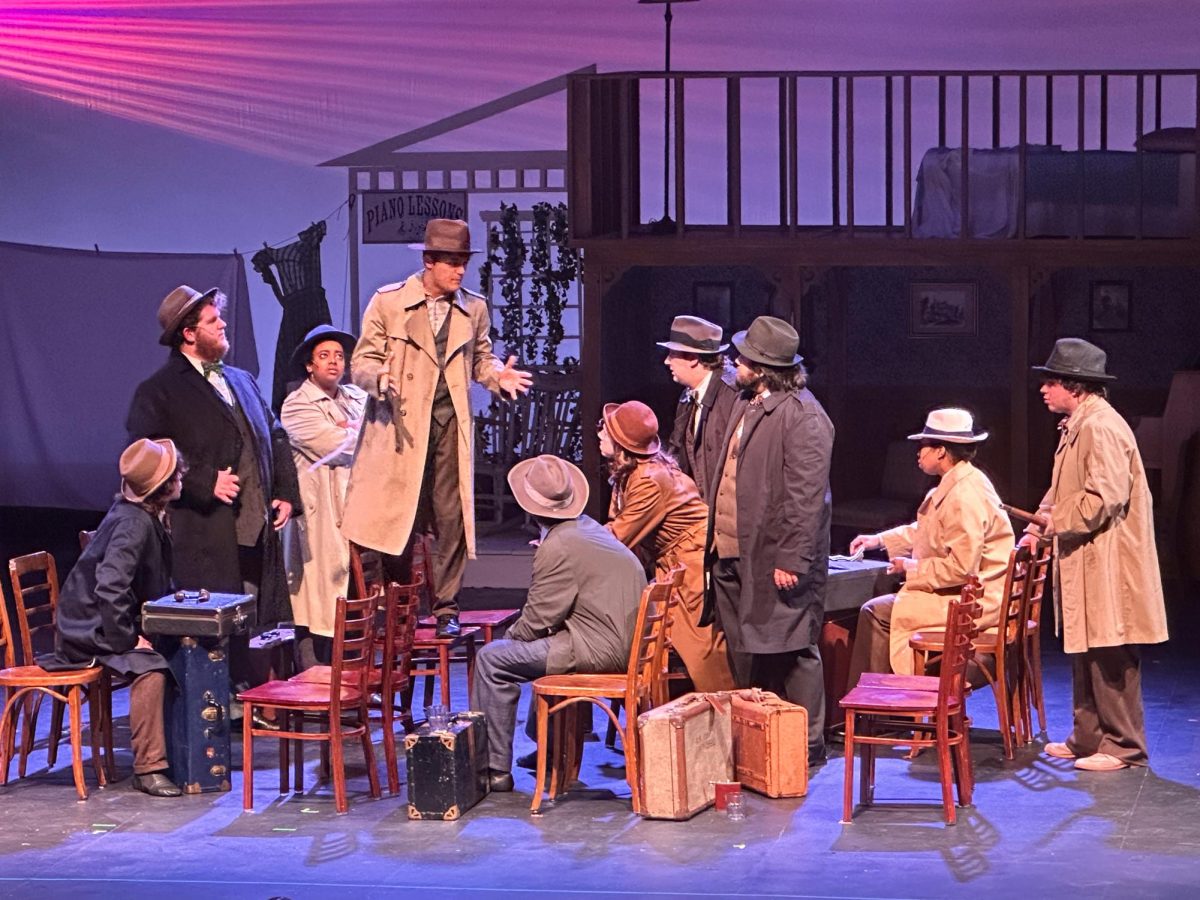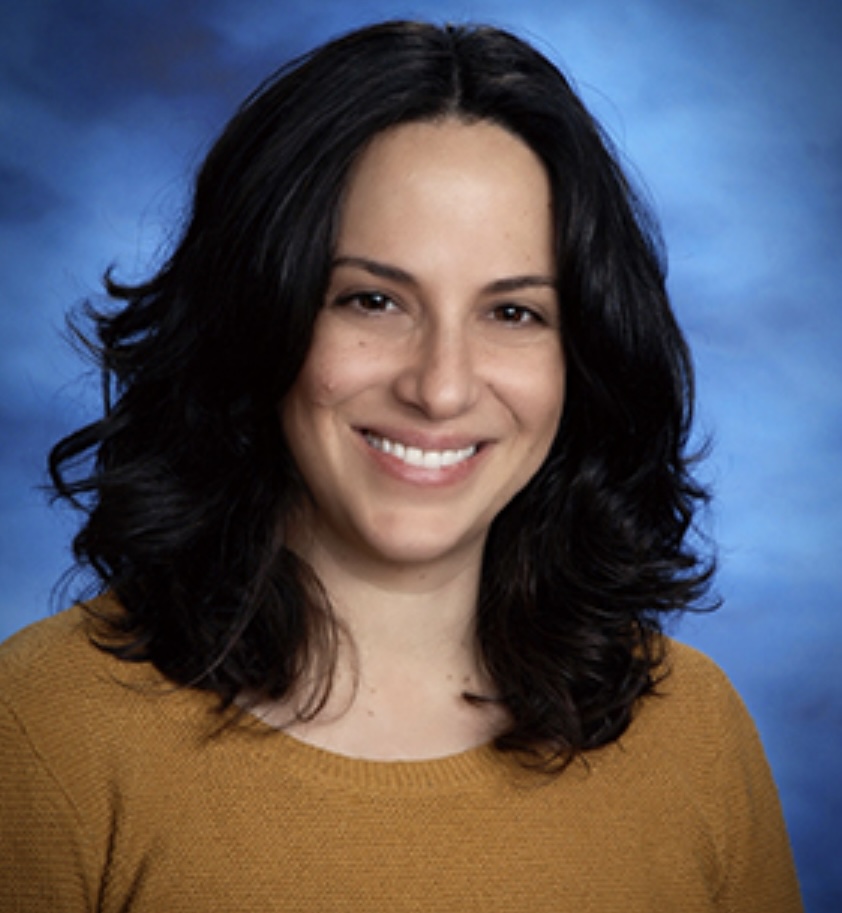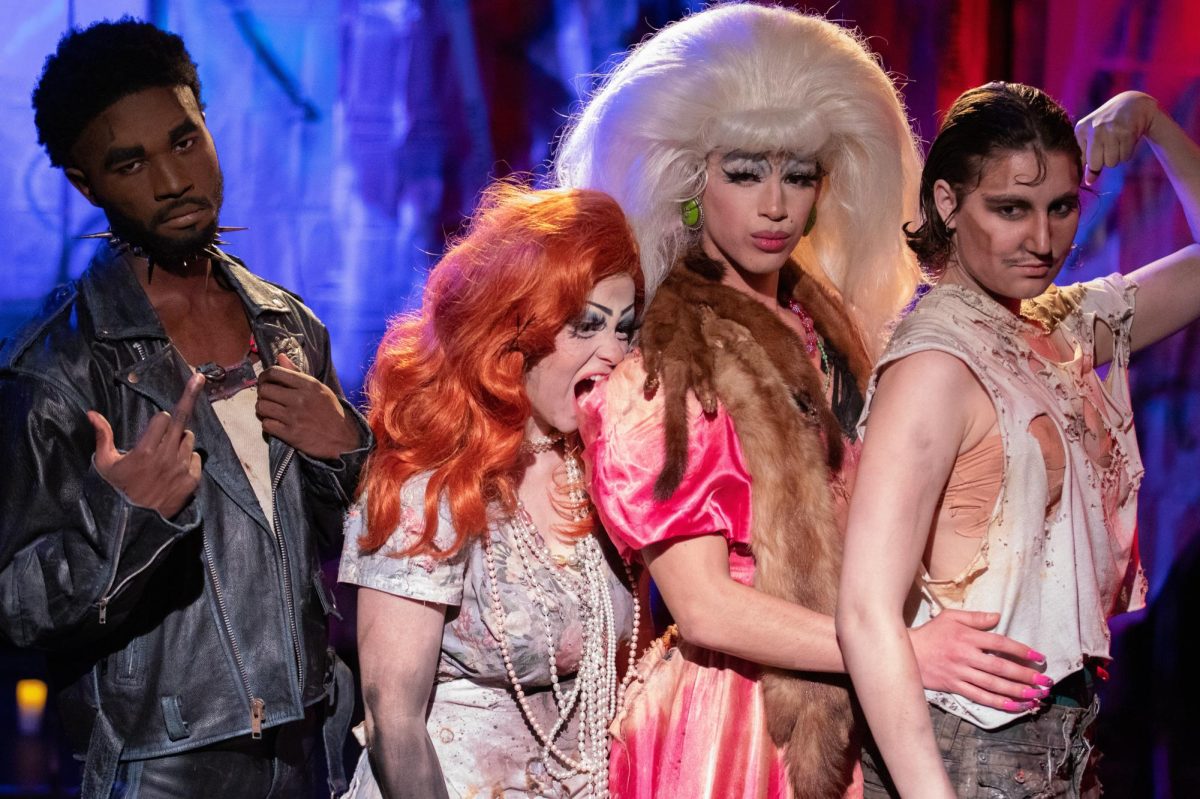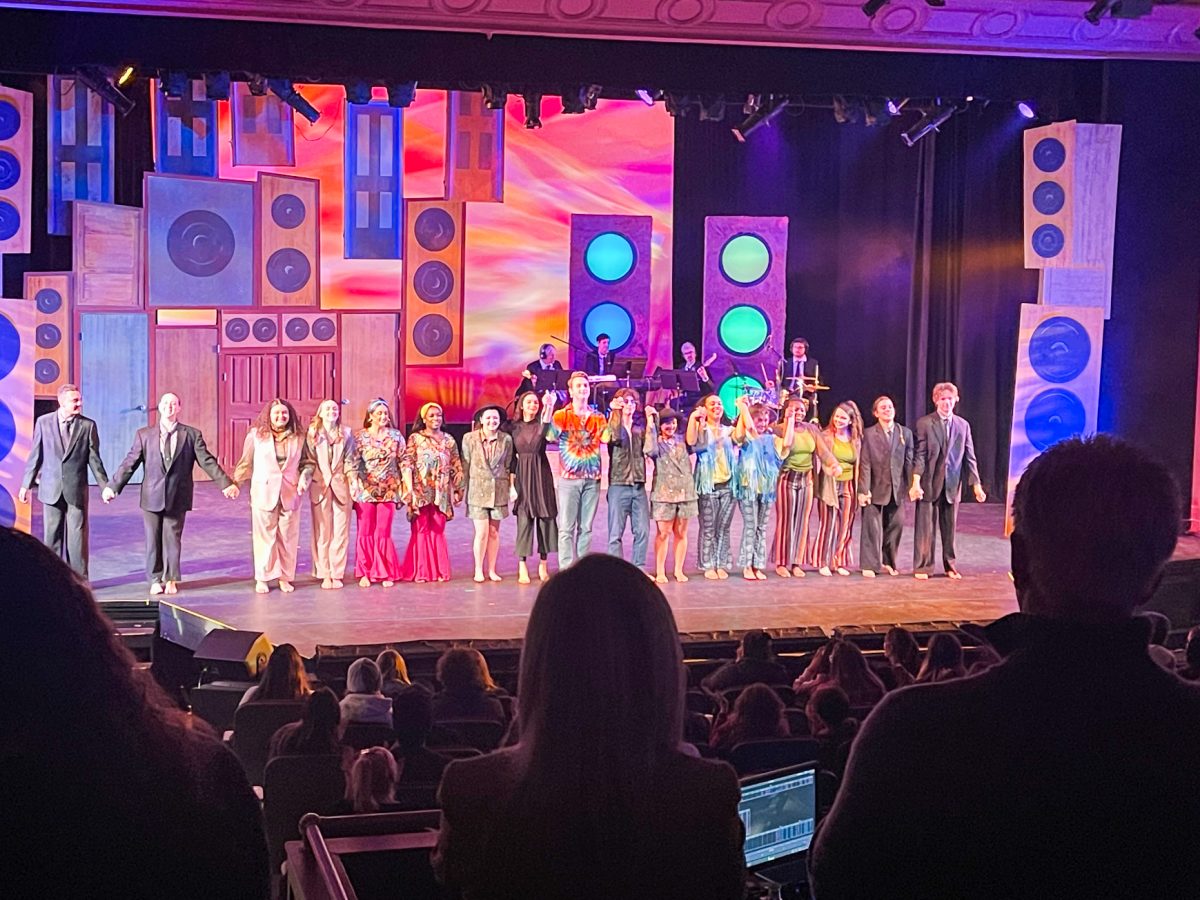This past weekend, Tohill Theater was filled with more than a retelling of the classic tale of Dracula; it was filled with the timeless reality of misogyny and toxic masculinity.
The Rowan Department of Theatre and Dance performed Kate Hamill’s “Dracula, a Feminist Revenge Fantasy, Really,” in Tohill Theater, from Oct. 23 to 26. The production reimagined the classic story of “Dracula” by centering on female leads and exploring themes of misogyny, toxic masculinity, and resistance against these societal problems.
The play began with Renfield, played by Mia Jeffery, delivering an alternative version of the Lord’s Prayer that replaces heaven with earth and removes certain lines. The opening showed Renfield’s devotion to who she calls her father, Dracula, played by Omari Williams, which is a key theme of the play.
Besides the opening, much of the first third of the show mirrored other iterations of “Dracula,” featuring characters like Jonathan Harker, played by Jack Zeis, Mina Harker played by Nicole Minar, and Dr. Seward played Aidan Dougherty, with small changes to the plot, and depiction of Dracula’s servants played by Sean Roberts, and Anna Cate Hoffmann, female characters who worshipped him.
Once the character of Doctor Van Helsing, played by Jennfier Hoard, is introduced, the story changes into something new — a story about Van Helsing fighting back against Dracula, and teaching Mina Harker how to become a strong individual to fight back against society’s misogyny and monsters.
The show’s director, Melanie Stewart, proposed the play to the planning committee after working on other shows that dealt with themes of misogyny and monsters, both of which were prevalent in “Dracula, a Feminist Revenge Fantasy, Really.”
Although the play took place during the Victorian era, Stewart said that the critiques of the patriarchy and misogyny in that time are still relevant today, even to a younger college audience.
“For a college audience of young men and young women, this is good to look at. This is good to kind of think about. What’s my position? And how do I contribute?” Stewart said. “I never think men are bad; women are good. It’s not that, it’s that we’re still working it out.”
While the show dealt with difficult themes, Stewart calls it a comedy. She directed the actors to be “bigger and broader,” caricatures who, because of Hamill’s writing, use modern phrases to show the monstrous traits of certain characters that span the contemporary world and the Victorian era.
“It has these kinds of inflections of yes, we’re in the contemporary world, but we’re looking, and being in the Victorian world,” Stewart said. “I would say their monstrosity came from the text.”
Sean Roberts, a junior theater major with concentrations in acting and design and a minor in dance, who played Drusilla, Miller, and Merchant in the show, said that this show is especially relevant to today’s political climate.
“It sort of tackles the ideas of masculinity, what it means, and how gender identity, expression, and sex all tied into treatment,” Roberts said. “It goes into all the different things that affect how you’re treated socially, and definitely tackles the ideas of toxic masculinity, and really breaks it down in an easy way to digest with a classical story tying them together.”
Like Roberts, Anna Cate Hoffmann, a sophomore double major in acting and music therapy, also played multiple roles, including Marilla and Maid. Both Marilla and Drusilla are female characters who serve Dracula and prey on other characters to give up their independence and follow him.
“The audience is able to compare the women that are strong, to the women that are no longer women, but still strong, just in a different mindset,” Hoffmann said.
While there were multiple strong female leads in the play, they fall under two categories: those that serve Dracula, and those fighting against him. While some served Dracula, both categories of women were victims of Dracula and the misogyny he created.
“Marilla and Drusilla sort of signify to me the people who side with the oppressor, thinking that it will get them out of the way and not have them targeted,” Roberts said. “But they’re falling under the same issues, and they’re being affected just as much as the people that they’re treating negatively.”
To successfully display complex themes, the cast and crew worked for months. The cast was announced in April, giving the actors a few months to memorize lines and practice their Texas, British, or Transylvanian accents with the help of Ross Beschler, the voice & dialect coach, before rehearsals started in September
“Part of my job is just helping them be both specific and also consistent,” Beschler said.
Backstage, crew members worked hard to make sure props were in the right places and that the set was prepared for performances. Grace Hoeltje, a senior theater arts major with a concentration in tech design, was the stage manager of the play, in charge of making sure things ran smoothly.
“If you don’t notice anything tech-wise, I did my job right,” Hoeltje said.
Throughout the three performances, the audience laughed, cheered, and clapped, all while experiencing a complex story which, like its female leads, confronted misogyny and toxic masculinity head-on.
For comments/questions about this story DM us on Instagram @thewhitatrowan or email [email protected].

